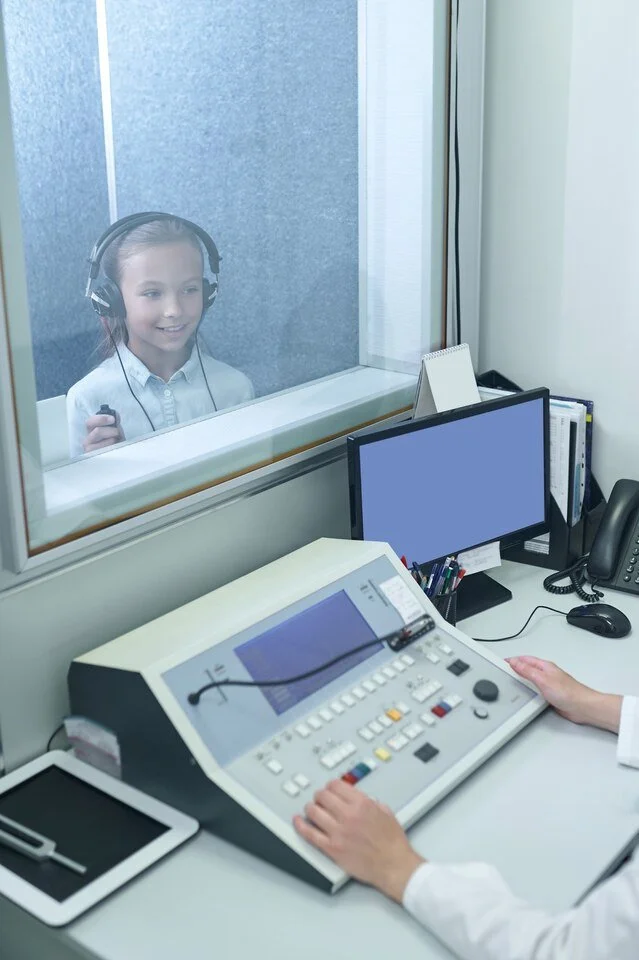What If Everything You Knew About Hearing Was Wrong?
After more than 30 years as an Ear Surgeon, I can tell you — this is exactly how I, and many of my ENT colleagues, felt about Cochlear Synaptopathy. (click to learn more)
Recent breakthroughs in research and technology have revealed just how extraordinary and fine tuned the inner ear really is. We’re now uncovering ways to treat conditions we once thought untreatable. Understanding the inner hair cell neurotransmission gives us better ways to defend our ears from degradation.
Knowledge is power. Become EarAware.
What If Music Makers, Music Lovers, And Music Venues Could All Be On The Same Page About Hearing Health?
Historically, they haven’t been. Some want it louder to blast over the crowd. Others want it softer to protect their hearing.
"Turn it down" gets an eye roll. "Crank it up"—“what, are you crazy?”
Can’t we just meet in the middle without calling each other crazy, stupid, or old?
That’s what EarAware aims to do. If we all understand the science behind the sound, we can find common ground.
Test your Hearing Age. Play this game with others and see where you are.
What is EarAware ?
EarAware is a Non-Profit campaign that promotes hearing education and empowers people to make sound-safe choices. This is what we are about:
◉ Care about your (and other’s) ears, be curious and learn!
◉ Monitor your environment by downloading a Sound Level Meter
◉ Keep volume under 85 dBA: “Sub 85 keeps your ears alive!”
◉ Choose the right hearing protection for your lifestyle
◉ Spot early signs of hearing damage (get a baseline audiogram and follow)
◉ If you have Sudden Hearing Loss, seek emergency care. Do not wait. Click Here
◉ Visit our Network of EarAware Physicians and Audiologists
◉ Visit our YouTube Channel, like and subscribe!
◉ Join the EarAware Ear Force, a global movement for listening awareness
◉ As a venue, get EarAware Pro Certified so patrons know you care!
◉ As music lovers, get EarAware Core Certified.
◉ As patrons, Look for EarAware Pro Music Venues, restaurants, churches
◉ As parents, insist on EarAware Cert for your kid’s music teachers and schools
◉ Please share your knowledge!
Hearing Loss is Optional. Really?
You actually get to choose your fate as to whether or not you will need hearing aids in your future. (Yes, we know there is the natural loss of ultra-high frequencies as we age. We are talking about noise induced HL)
Become aware of the science, so you can protect your hearing appropriately. Whether you’re a musician, sound engineer, parent, or everyday listener, we’ll show you what safe sound levels are, which tools actually work, and how to apply these tools.

Become a Certified EarAware Instructor and Leader!
Level up your knowledge. Rise through the ranks. Protect the future of hearing.
As you complete milestones, you’ll earn Ear Badges and climb in rank—from Recruit to Commander. Score points for actions like registering, downloading a sound level meter app, logging your baseline audiogram, passing quizzes, sharing the mission, engaging on the blog and getting certified.
Track your journey on your personal profile page, where every step forward brings you closer to becoming officially certified—a recognized leader in hearing health advocacy.
Join the mission. Get certified. Let people know that you know your stuff and will protect their hearing when they entrust their ears to you!

Be the Change. Be EarAware.
Join the Ear Force movement to protect hearing and promote sound awareness. Sign up for our newsletter to get expert tips, tools, and updates. Share your story, become an advocate, or partner with us to make safe listening a global norm.
Built by Experts. Backed by Purpose.
What began as a grassroots movement by Dr. John Li—Ear Surgeon, USAF Flight Surgeon, and international speaker on ear disease—and Dr. Terry Lyles—renowned psychologist and performance coach—has grown into a powerful groundswell of people committed to one mission: making the world EarAware.
We’ve united a nationwide network of ENTs, Audiologists and Scientists who contribute cutting-edge medical insight, forming both an elite advisory board and a trusted referral network.
Sound engineers and venue operators have also joined the mission, championing safer, smarter listening environments.
Together, these diverse experts have created a groundbreaking certification program—one that recognizes individuals and venues who care enough to protect hearing for the long haul.





